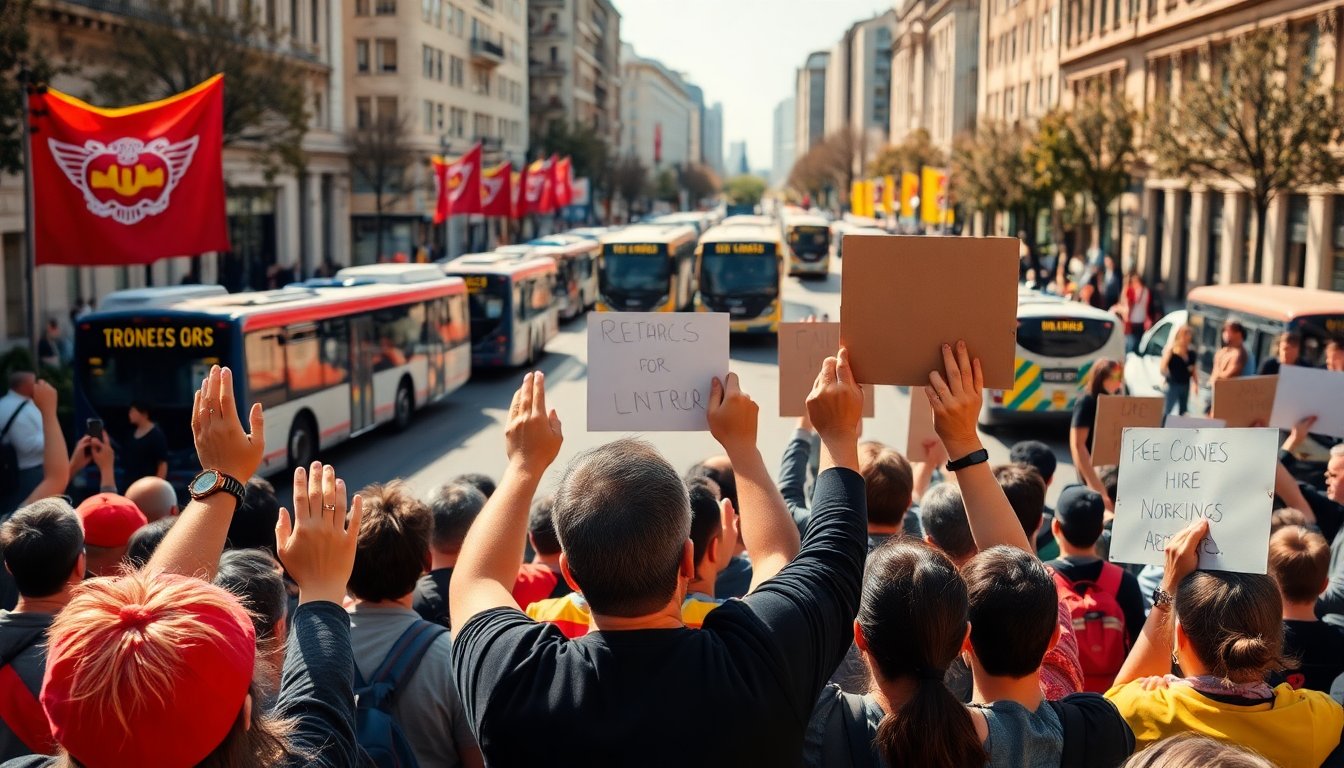Table of Contents
Unions across Greece have initiated a nationwide strike to protest proposed changes to labour laws that would allow longer working hours. This action has resulted in significant disruptions to public transport and essential services, affecting the daily routines of many citizens.
The strike, organized by unions representing civil servants and private sector employees, has halted operations in major cities. In Athens, taxi services and trains have ceased operations for a full 24 hours, while buses, trams, and trolley services are operating on a limited schedule. Ferries are also docked, unable to operate. The strike’s impact extends beyond transportation; schools, courts, and public hospitals are experiencing service interruptions.
Understanding the implications of extended work hours
Central to the unions’ protests are proposed amendments to labour laws aimed at introducing more workplace flexibility. The government plans to allow shifts of up to 13 hours per day, raising concerns about potential exploitation by employers. Unions argue that these changes could lead to serious labour abuses.
Concerns over worker welfare
The General Confederation of Greek Workers (GSEE) has voiced strong opposition to the proposed regulations. In a statement, they emphasized, “We reject the notion of a 13-hour shift. Exhaustion does not equate to progress, and there are limits to human endurance.” The union contends that the new policies threaten workers’ health and safety and disrupt the balance between professional and personal lives.
The GSEE advocates for a 37.5-hour work week and the reinstatement of collective bargaining agreements, which they believe are essential for maintaining fair labour practices.
The government’s perspective on the reform
In contrast, the Greek government, led by Prime Minister Kyriakos Mitsotakis, argues that the proposed changes aim to enhance worker flexibility and cater to those who wish to work additional hours. The administration claims that the reforms will apply for a limited duration of 37 days per year, allowing for up to 150 hours of overtime annually, with workers receiving up to 40% extra pay for these hours.
Economic context and worker concerns
Despite declining unemployment rates and recorded economic growth of 2.3% last year, many Greeks struggle with low wages and a high cost of living. The minimum wage, although recently increased, stands at 880 euros (approximately $1,031) per month, which many argue is insufficient for basic living expenses.
Prime Minister Mitsotakis has defended the proposed reforms, stating, “We are offering both employers and employees the freedom to make choices. How can that be considered antisocial?” His statement reflects the government’s belief that the changes will empower workers by providing them the option to increase their income through overtime.
Public response and future outlook
The public response to the strike has been mixed, with many citizens expressing sympathy for the unions’ concerns regarding overwork and burnout. Protest marches are scheduled in central Athens and various cities across the country, highlighting the fears of workers about the potential impact of extended hours on their health and quality of life.
As the situation develops, unions remain steadfast in their opposition to the changes, emphasizing the need for a balanced and humane approach to labour laws. The outcome of this strike and the government’s response may set a significant precedent for the future of work in Greece.


